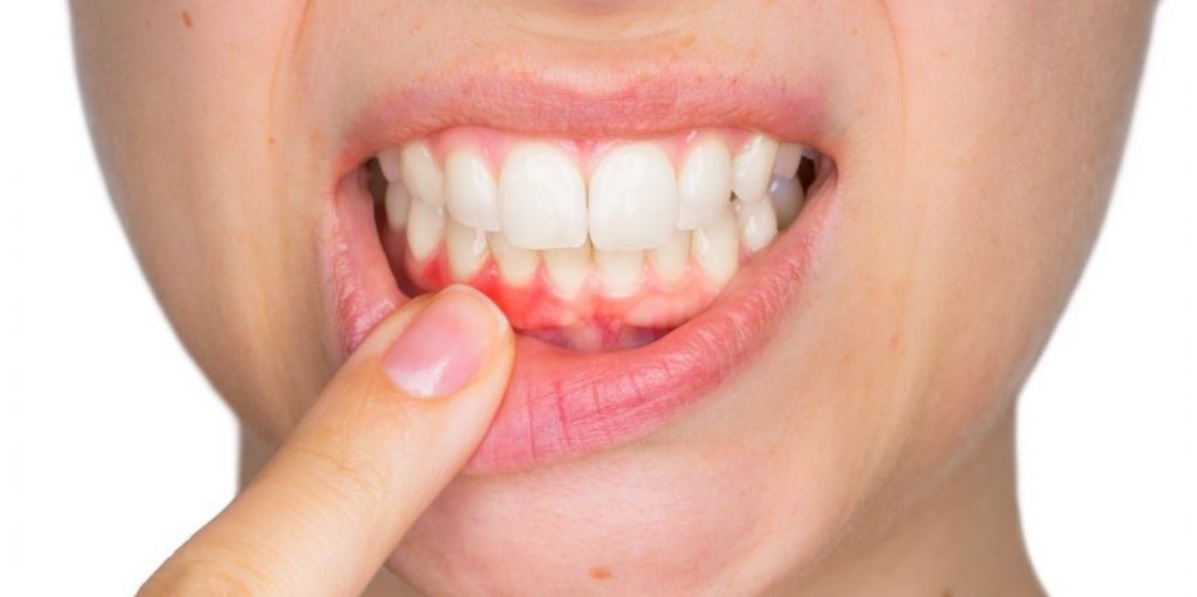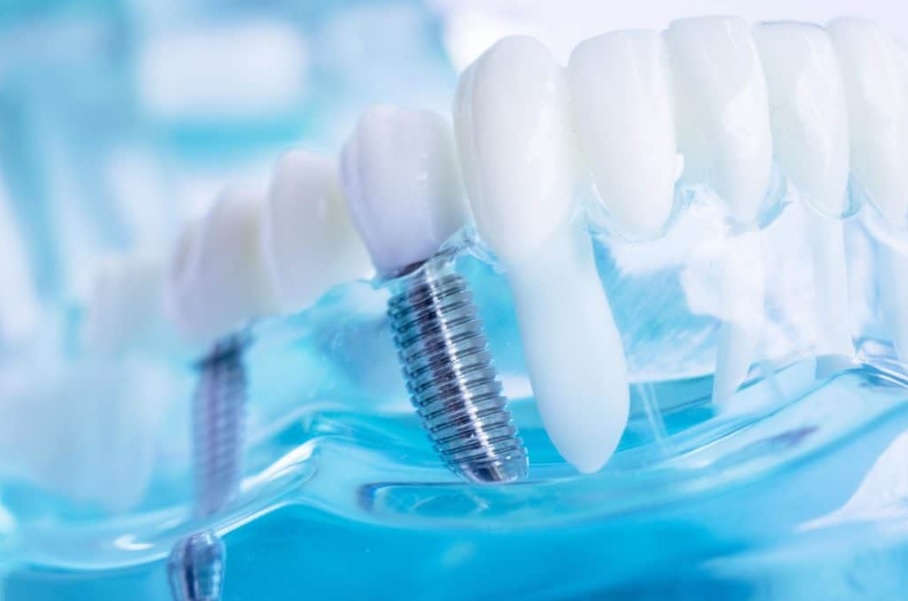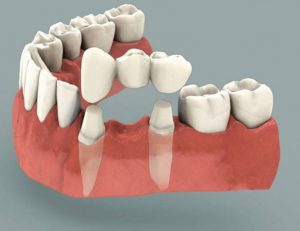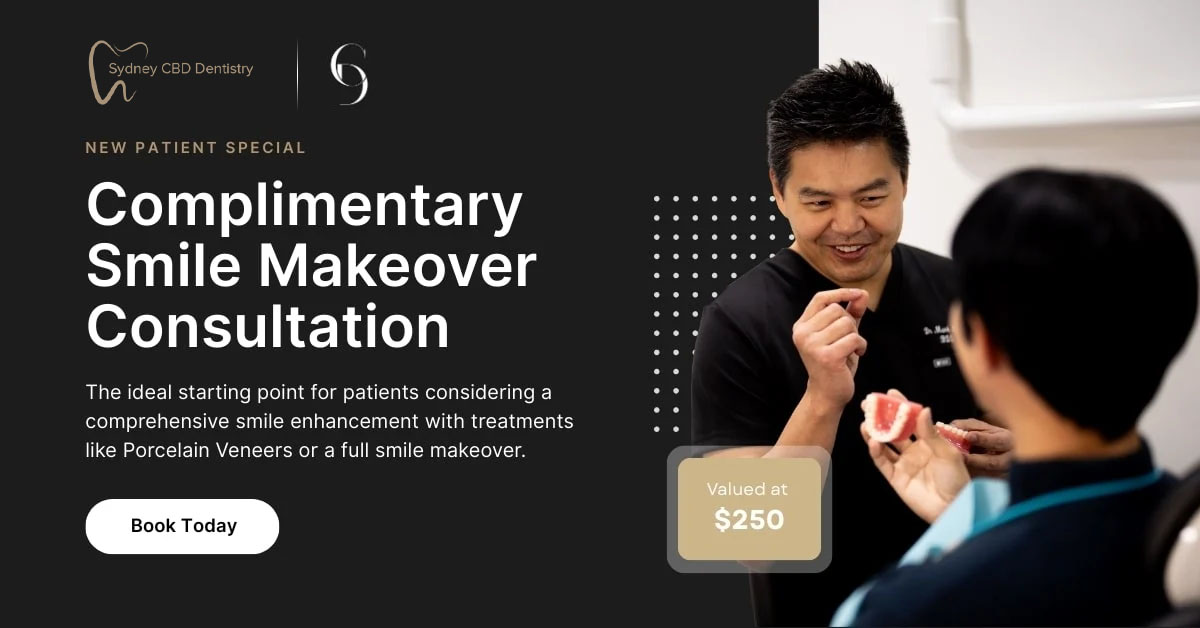Do your gums bleed when you brush?
Why should you keep brushing to stop bleeding?
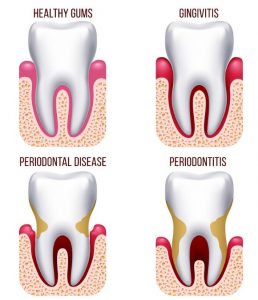
Very often, as a result, people then avoid brushing and stop going to the dentist. What a misconception! In fact, bleeding gums indicate an underlying health issue and is far more common than people think: gum disease.
Gum disease is a silent killer, and statistics show every 1 in 2 adults have some form of gum disease. The majority of these cases arise from inadequate plaque and calculus removal.
The only way to control gum disease is by maintaining meticulous oral hygiene and visiting your dentist Sydney regularly to get your teeth professionally cleaned.
What is Gum Disease?
Gum disease is the infection of the gums because of poor oral hygiene, smoking, or taking medication. It usually starts as gingivitis, which is inflammation of the gums.
It is reversible at this early stage, which means your gum tissues can return to normal after treatment. However, if left untreated, it leads to irreversible damage in the form of established periodontal disease or periodontitis.
Periodontitis can be classified broadly into mild, moderate, and severe forms depending on the degree of gum loss around the roots of the teeth. Inflammation in any part of the body for an extended period of time causes underlying tissue damage. Our gums are no different.
If periodontitis isn’t treated in time, it leads to the gums around the roots of the teeth start receding, and usually, the underlying bone follows.
Periodontitis is irreversible, which means your gums and the surrounding alveolar bone does not grow back. In the advanced stages, if there is enough bone loss, the teeth become loose in their sockets and eventually run the risk of falling out.
Hence it is critical to notice the early signs of gum disease or periodontitis and get it treated to avoid the premature loss of teeth.
What are the signs that you have Gum Disease?
Healthy or normal gum is pink and firm, whereas if the gum is red and swollen, that is a sign of inflammation. The easiest way to spot gum disease is bleeding while brushing or flossing.
Other symptoms include bad breath, gum recession, tooth-root exposure, teeth that are moving, and finally pus or a bad taste from an area of the mouth. Seek dental treatment as soon as possible to avoid these problems escalating.
Gum Disease is a silent killer!
You might think “they are just teeth, can’t you just indeed pull them out?” Even if that were the solution, teeth and gums provide a multitude of functions that are not easy to replace with false teeth. Dental treatment to replace those lost teeth includes dental implants, dental bridges, or even dentures.
It can take years for you to be comfortable wearing dentures and very often they need to be replaced or relined as the bone in the mouth resorbs. You are at risk of losing the functional ability to eat certain foods and even taste.
Maintaining oral hygiene becomes even more critical with false teeth and dentures as you have to keep them extra clean as well as the remaining teeth in the mouth.
Some people underestimate the importance of general oral hygiene. In fact, scientists have proven that oral health directly affects your overall health.
The mouth is the entrance to the respiratory and digestive system; some conditions have an established link to bad oral health including endocarditis, cardiovascular disease, pneumonia. Poor oral hygiene can also cause pregnancy and birth complications.
How to maintain oral hygiene and prevent gum disease?
The key is to maintain good oral hygiene and regular dental visits once every 6 months. Make it your habit, brush your teeth at least twice a day, and remember to floss.
Brushing your teeth properly, spending a good 2 minutes, making sure to cover all the surfaces. You don’t need to brush too hard, plaque is easily removed with nice and gentle strokes of the bristles over your teeth and the gums.
For the stubborn calculus or tartar that cannot be removed by brushing or flossing, you need to keep your bi-annual appointment with your “dentist near me“.
Finally, a big risk factor that has to be discussed is smoking. Everyone knows smoking isn’t good for your health.
It weakens your immune system and makes it harder to fight the bacteria attacking your gums. Smoking cessation improves the health of your gums dramatically.
Maintaining healthy eating habits with lots of vitamins and fiber, eating less processed sugars, and avoiding soft drinks are also imperative.
Keep smiling and take pride in your oral health.

